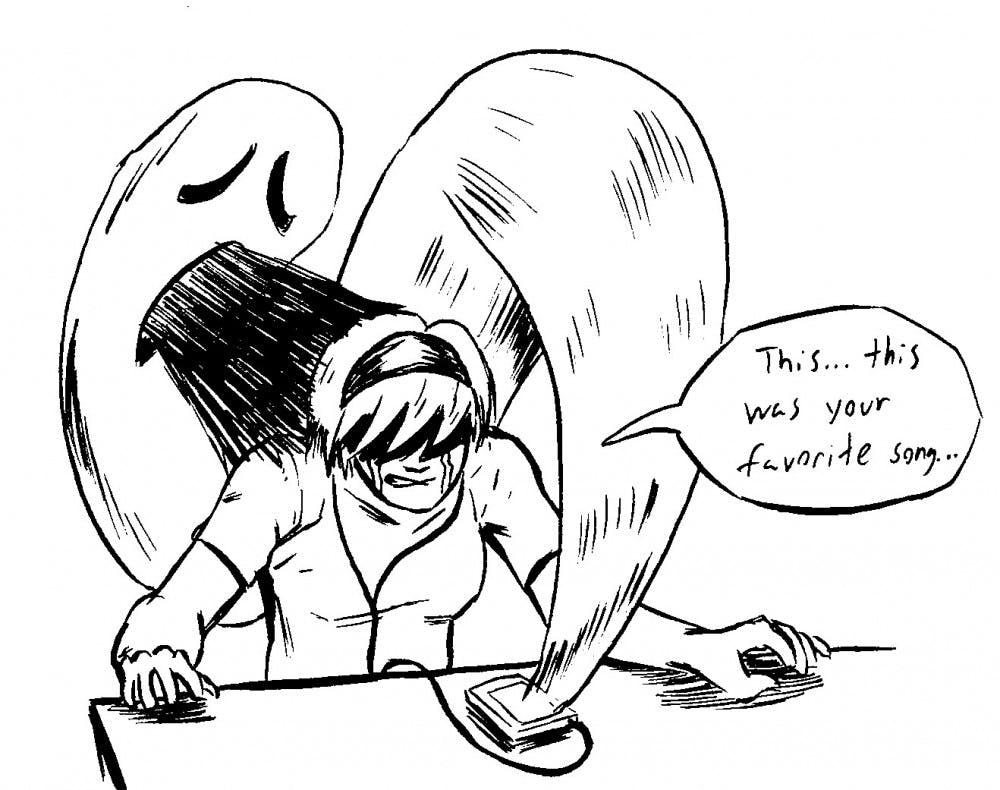Last Tuesday, our university lost a great scholar and mentor. On July 8, George Peters died of pancreatic cancer, less than two months after retiring as a professor at Michigan State University.
But you probably didn’t know he had cancer, even if you had him as a teacher.
According to the Hirschberg Foundation for Pancreatic Cancer Research, almost three-quarters of pancreatic cancer patients die within a year of diagnosis. Professor Peters spent that year teaching and writing his third book on Heinrich Heine, the German philosopher.
Then he survived another year and spent that one teaching and writing, too.
I had the pleasure of taking two German courses with Professor Peters, including the last one he ever taught, and I experienced the shock and sadness of reading his obituary on a computer screen.
Professor Peters hid his disease from our class. When he was losing his hair, he wore a hat. I suspected he had cancer from the hair loss, but at the time I thought I was being paranoid for having cancer on my mind because my mom died of uterine cancer in April. I never told Professor Peters about my mom — I just kept turning in work and missing a class here and there.
In hindsight, I think Professor Peters and my mom played the same game — cover up the disease before it covers you. Then, continue to be yourself. Continue to give what you can.
My mom cut her t-shirts to fit over the bandages she put on her tumors, which appeared on the outside of her skin. I helped with a bandage once, when my mom asked me out of quiet desperation. And even then, she still managed to hide the worst of those wounds from me.
My mom didn’t let cancer take away her role as a parent. She still did laundry, played Bananagrams with me over deep conversations and a kale smoothie, went for walks with friends and bought groceries for the family. She would find ways to work out in the winter, like walking at the mall and doing sets of stairs.
Professor Peters didn’t let cancer take away his role as an educator. He turned his final German course into a hybrid so most of the work was online, but we still met every Monday in Wells Hall to review work and take exams. I remember only one instance the entire semester in which he cancelled class for vague and “mild” health reasons.
My mom and Professor Peters hid their wounds and continued to give their gifts to the community as they fought their battles. But for those left behind, the effects of cancer don’t wear off after death.
The disease continues to induce a secondhand suffering.
The world has lost two great people, but the disease has not died with them. The effects of secondhand cancer linger in the hearts of their loved ones. One moment, I can be shampooing my hair and the next, I’m grasping the shower walls as my body goes into panic-mode. I can’t breathe, I can only cry.
My dad watched a full Billy Joel concert on TV, because my mom loved Billy Joel music.
My sister wears a gold cross my mom never took off for more than forty years — now she never takes it off. My grandma has coffee with my mom’s picture every morning as she prays for my mom to call her.
I can only imagine the ashy sadness that fills the hearts and minds of Professor Peter’s loved ones, and the hearts of those that have suffered similar losses.
I know what my mom would want in so many situations. We had deep conversations in which she gave me a lifetime of loving advice. In the two German classes I had with him, Professor Peters only showed our class patience and compassion.
Cancer will always gnaw at those it leaves behind. Yet despite the loss and heartbreak of losing a mother, and despite the shock of losing a professor, I’ve learned over time to power through the sadness and apply to my life everything they taught me before the cancer took them.
We take the lessons of cancer’s victims, and we keep them in our souls. We practice George Peter’s compassion and Kristin Brender’s relentlessness. We continue to work towards the greater good in our roles as mentors and friends. And because of that, the cancer won’t kill us.
Melanie Brender is a communications and social relations and policy senior. Reach her at mbrender@msu.edu.






